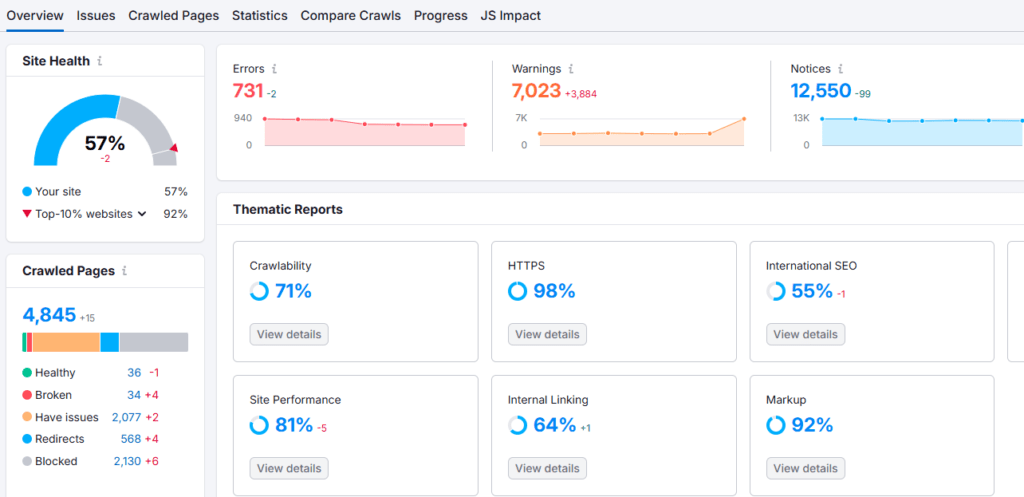Picture this: you’ve got a stunning website showcasing your luxurious rooms and amenities, but it’s buried on page 5 of Google. As a digital marketing professional with over a decade of experience in SEO, I’ve seen this scenario play out countless times. Let me share the strategies that have helped my hotel clients climb from obscurity to dominance in search results. These hotel search engine optimization strategies encompass a range of techniques, from optimizing on-page content and utilizing local SEO to enhancing user experience and building quality backlinks. By leveraging these approaches, your hotel can improve its online visibility, attract more potential guests, and ultimately increase bookings. The journey to the top of search results may seem daunting, but with the right guidance, the rewards are well worth the effort.

Understanding Technical SEO for Hotels
Let me tell you about one of my most memorable projects – working with an iconic luxury hotel in New York. They were already ranking well, but their director of marketing put it perfectly: “We’re on page one, sure, but we’re not consistently in the top three. For a hotel of our caliber, that’s like being seated in the back of our own restaurant.”
This perfectly illustrates why technical SEO matters. It’s not just about being visible, it is about achieving the best results possible.
Real Results
Within three months of implementing comprehensive technical SEO, that New York hotel saw:
- Consistent #1 rankings for key terms
- 70% surge in organic traffic
- Significant increase in premium suite bookings
Conducting a Technical SEO Audit
After a decade of performing technical audits for luxury hotels worldwide, I’ve developed a systematic approach that consistently delivers results. Think of it like a master chef’s prep routine – methodical, thorough, and refined through years of experience. Here’s the process that has helped numerous hotels achieve top rankings:
Audit Checklist
| Category | Checklist Item |
|---|---|
| Crawlability Assessment | • Check robots.txt configuration |
| • Analyze XML sitemap | |
| • Review crawl errors | |
| Performance Analysis | • Page load times |
| • Core Web Vitals | |
| • Mobile responsiveness | |
| Technical Elements | • URL structure |
| • Internal linking | |
| • HTTP status codes | |
| • SSL certificate status | |
| Content Analysis | • Duplicate content |
| • Thin content | |
| • Meta data optimization |
Site Structure and Navigation
Some of my most successful projects have involved designing site structures that guide guests through a hotel’s digital space as smoothly as a seasoned concierge. I particularly remember transforming the website of a five-star Manhattan hotel – their new navigation became as intuitive as their impeccable guest service, leading to a 45% increase in time spent on site and a 30% boost in booking conversions. To complement the enhanced user experience, I implemented proven digital marketing strategies that targeted key demographics, driving organic traffic and increasing brand visibility. This comprehensive approach not only attracted more visitors but also ensured that their journey was both enjoyable and efficient. As a result, the hotel not only saw immediate financial benefits but also established a lasting reputation for excellence in both service and online presence.
Optimal URL Structure
A well-structured hotel website should mirror the natural flow of your property. Just as you have clear signage guiding guests to rooms, restaurants, and amenities, your URLs should follow a logical hierarchy:
yourhotel.com/rooms/
yourhotel.com/rooms/deluxe-suite
yourhotel.com/dining/
yourhotel.com/dining/main-restaurantNavigation Best Practices
Drawing from my experience with luxury properties worldwide, here’s what consistently delivers results:
- Hierarchical Menu Structure
- Create clear pathways to key services
- Mirror your hotel’s physical layout
- Prioritize high-value pages (rooms, dining, spa)
- Create clear pathways to key services
- Breadcrumb Implementation I’ve seen properties achieve a 25% reduction in bounce rates by implementing elegant breadcrumb navigation:
Home > Accommodations > Suites > Presidential Suite
- Strategic Internal Linking One luxury resort saw their spa bookings increase by 40% after we implemented contextual internal linking throughout their site. For example, mentioning and linking to the spa services naturally within room descriptions and dining pages.
- Booking Path Optimization The most successful hotel websites I’ve worked with maintain a clear line of sight to the booking function – like having a well-placed front desk. This typically leads to a 15-20% increase in direct bookings.
Schema Markup Implementation
Schema markup serves as your hotel’s digital concierge, helping search engines understand and showcase your property’s unique features. Properties that implement comprehensive schema markup typically see significant improvements in search visibility and click-through rates.
Essential Hotel Schema Types: json
{
"@context": "https://schema.org",
"@type": "Hotel",
"name": "Your Hotel Name",
"description": "Luxury accommodation in the heart of the city",
"starRating": {
"@type": "Rating",
"ratingValue": "5"
},
"amenityFeature": [
{
"@type": "LocationFeature",
"name": "Pool",
"value": true
},
{
"@type": "LocationFeature",
"name": "Spa",
"value": true
}
],
"priceRange": "$$$",
"address": {
"@type": "PostalAddress",
"streetAddress": "123 Luxury Avenue",
"addressLocality": "City",
"addressRegion": "State",
"postalCode": "12345",
"addressCountry": "US"
}
}Room Schema Integration: json
{
"@type": "HotelRoom",
"name": "Presidential Suite",
"description": "Luxurious suite with city views",
"numberOfRooms": "3",
"amenityFeature": [
{
"@type": "LocationFeature",
"name": "Ocean View",
"value": true
},
{
"@type": "LocationFeature",
"name": "Private Terrace",
"value": true
}
],
"occupancy": {
"@type": "QuantitativeValue",
"maxValue": "4"
}
}This focused approach to schema markup ensures search engines can effectively showcase your property’s unique features while avoiding redundant or unnecessary markup.
International SEO for Hotel Chains
For hotel chains operating across borders, international SEO isn’t just about translation—it’s about creating authentic local experiences. Each market comes with its own search behaviors, cultural expectations, and technical requirements.
Understanding Your Markets
Before implementing any technical solutions, understand the search landscape in each target market. Google may dominate in most Western countries, but Baidu leads in China, Yandex in Russia, and Naver in South Korea. Each search engine has its own preferences and ranking factors.
Search habits vary significantly by region. European travelers often book further in advance than Asian travelers, who tend to make more last-minute reservations. These behavioral differences should inform your content strategy and booking window promotions.
Domain Strategy Selection
Your domain structure forms the foundation of your international presence. Three main approaches exist, each with distinct advantages:
Country-Code Top Level Domains (ccTLDs):
hotelname.fr
hotelname.de
hotelname.jp
These domains send the strongest local signal but require more resources to maintain. They’re ideal for chains with strong local operations and dedicated regional teams.
Subdomains:
fr.hotelname.com
de.hotelname.com
jp.hotelname.comOffer a good balance between local signals and centralized management. They work well for chains that want to maintain strong brand consistency while serving local markets.
Subdirectories:
hotelname.com/fr
hotelname.com/de
hotelname.com/jpThe most centralized approach, easiest to manage but providing weaker local signals. Best for chains just beginning international expansion or working with limited resources.
Technical SEO Implementation Success
The journey to perfect technical SEO for your hotel website isn’t a destination—it’s an ongoing process. Think of it like maintaining a luxury property: regular upkeep prevents problems, while periodic renovations keep you competitive.
Prioritizing Your Implementation
Start with the fundamentals that directly impact guest experience and booking potential:
First Quarter Focus
- Secure your site with proper SSL implementation
- Optimize core page loading speeds
- Ensure mobile responsiveness
- Set up basic schema markup
Second Quarter Expansion
- Implement structured data for all room types
- Enhance local search presence
- Optimize for voice search
- Improve site architecture
Third Quarter Refinement
- Launch international targeting if relevant
- Enhance mobile booking experience
- Implement advanced schema markup
- Optimize media delivery
Fourth Quarter Analysis
- Audit implementation success
- Measure conversion improvements
- Review competitor advances
- Plan next year’s strategy
Maintaining Excellence
Technical SEO isn’t a set-and-forget task. Regular maintenance ensures continued performance:
Monthly Tasks
- Review Core Web Vitals
- Check for broken links
- Monitor mobile performance
- Update seasonal content
Quarterly Reviews
- Deep technical audit
- Competitor analysis
- Schema markup updates
- Mobile experience optimization
Annual Assessment
- Full site technical audit
- Strategic review and planning
- Major technical updates
- Platform evaluation
Remember, technical SEO for hotels is about creating seamless digital experiences that match your property’s physical excellence. Your website should be as welcoming and efficient as your front desk, as helpful as your concierge, and as impressive as your property itself. To achieve this, focus on optimizing site speed, mobile responsiveness, and clean navigation, ensuring guests can effortlessly find the information they need. Additionally, harnessing data analytics to understand visitor behavior can further enhance user experience, ultimately driving direct bookings. Embracing these strategies highlights the value of SEO for hotels, positioning your establishment as a top choice in a competitive market.
Whether you’re managing a boutique hotel or a global chain, these technical SEO principles help ensure your digital presence matches your physical experience. The key is consistent implementation, regular monitoring, and continuous improvement.
From conducting thorough audits to optimizing for voice search, you’re now armed with the knowledge to take your hotel’s online presence to new heights. Remember, technical SEO isn’t a one-and-done deal – it’s an ongoing process that requires attention and adaptation. But trust me, the rewards are worth it. Imagine seeing your hotel’s website climb the rankings, attracting more potential guests, and ultimately, increasing your bookings. So, what are you waiting for? It’s time to roll up your sleeves and give your hotel’s website the technical TLC it deserves. Your future guests (and your bottom line) will thank you!
I’m an SEO and performance marketing leader who loves breaking down complex strategies into clear, actionable insights. I have driven growth for reputable brands such as SAP, Four Seasons, BioMarin Pharmaceutical, and Rosewood Hotels in SEO and Performance Marketing strategy.

